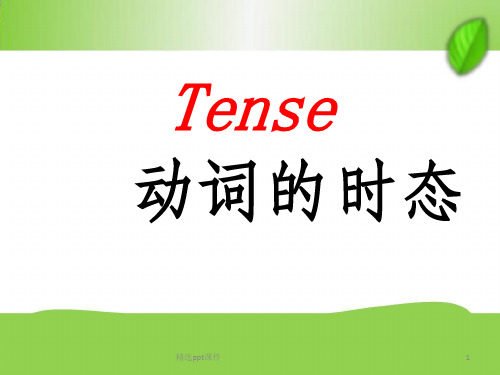初中英语知识点总结ppt课件
合集下载
初中英语名词总结ppt课件

13
Practice:
可数名词用a/ an,不可数名词用some
_______ fruit _______ paper _______ work
_______ cheese _______ news _______ petrol
_______ egg
_______ hour _______ job
__s_o_m_e__fruit
__s_o_m__e_ paper __s_o_m_e__ work
__s_o_m_e__ cheese __s_o_m_e__ news __s_o_m_e__ petrol
___a_n___ egg
___a_n___ hour ___a____ job
__s_o_m_e__ fish(鱼肉) _s_o__m_e__ soup ___a_n___ office
e.g.: Most p_o_lic_e _w_ea_r uniforms.
The class__a_r_e__ discussing about the maths problem.
6 The class __i_s___ ready to have the English lesson.
c. 抽象名词(不可数名词) 如music, cold, love, youth, rest, power
city—cities; family—families
9 * day—days; boy—boys
B. 名词复数—不规则变化
写出下列名词的复数
➢childgoosemouse foot➢
tooth
woman postman
➢
fish
sheep
Chinese Swiss
Practice:
可数名词用a/ an,不可数名词用some
_______ fruit _______ paper _______ work
_______ cheese _______ news _______ petrol
_______ egg
_______ hour _______ job
__s_o_m_e__fruit
__s_o_m__e_ paper __s_o_m_e__ work
__s_o_m_e__ cheese __s_o_m_e__ news __s_o_m_e__ petrol
___a_n___ egg
___a_n___ hour ___a____ job
__s_o_m_e__ fish(鱼肉) _s_o__m_e__ soup ___a_n___ office
e.g.: Most p_o_lic_e _w_ea_r uniforms.
The class__a_r_e__ discussing about the maths problem.
6 The class __i_s___ ready to have the English lesson.
c. 抽象名词(不可数名词) 如music, cold, love, youth, rest, power
city—cities; family—families
9 * day—days; boy—boys
B. 名词复数—不规则变化
写出下列名词的复数
➢childgoosemouse foot➢
tooth
woman postman
➢
fish
sheep
Chinese Swiss
初中英语六种时态复习课件(35张PPT)

②while 引导的从句表示“在……期间”,主从句谓语动词所表示的动 作同时ቤተ መጻሕፍቲ ባይዱ生。这时,主从句都用过去进行时。
e.g.:My father was reading the newspaper while my mother was watching TV.当我的妈妈看电视的时候,我的爸爸正在看报纸。
(2)表示普遍真理或客观事实。 e.g.:The sun rises in the east.太阳从东方升起。 (3)在条件状语从句和时间状语从句中,用一般现在时表示将来。 e.g.:If it doesn't rain tomorrow,we will go for a picnic.如果明天不下 雨,我们将去野餐。 (4)在某些以 here,there 开头的句子中用一般现在时表示正在发生的动作。 e.g.:There goes the bell.铃响了。
(3)现在进行时表示将来 表示位置移动的动词 go,come,leave,fly,start,meet,move 等, 可以用现在进行时表示将要发生的事。 e.g.:We are leaving for London.我们就要动身去伦敦了。
(4)一般现在时表示将来 ①表示按规定或时间表预计要发生的动作。 e.g.:Our plane takes off at 8:10.我们的飞机 8:10 起飞。 ②当主句为一般将来时,或含有情态动词,或是祈使句时,在 if,as soon as,until,when 等引导的状语从句中用一般现在时表示将来。 e.g.:I will give him the book as soon as he comes here.他一来这儿, 我就把这本书给他。
(2)表示当前一段时间内的活动或现阶段正在进行的动作。 e.g.:They are picking apples on a farm all the time.他们一直在农场 摘苹果。 (3)与 always,usually 等词连用,表达说话人强烈的感情,如赞扬、不 满、讨厌等。 e.g.:Mary is always thinking of others instead of herself.玛丽总是为 别人着想,而不为自己着想。
初中英语八大时态-讲解ppt课件

D.have;left
精选ppt课件
18
六、过去将来时
1.用法:从过去看将要发生的动作。
2.结构:would was/were/going to +v.(原型)
例题
1.--What did he say yesterday?
--He said he____to Sydney next week.
A.goes B.will go
在有关的过去动作用现在完成,与现在 无关的过去动作用一般过去。)
4.易错点:
1 have gone to+地点,表示“去了某地”。
(人已走,尚未回。只用于第三人称。)
They have gone to Europe.
(They are not here.)
精选ppt课件
22
2 have been to+地点,表示“去过某
C.would go D.are going
2.--Did your son fail his English exam once again?
--Yes, but he told me he____hard next term.
A.studies B.is studying C.wil--When____we have the meeting? ---At 8.
A.are B.shall
C.would D.will
4.--When___you___for London? --Next week.
A.will;leaving
B.are;leaving
C.shall;leave
A.are work
B.are worked
C.work
介词(19张PPT)初中英语专项复习课件

The teacher is sitting in the front of the classroom. 老师正坐在教室前部。
(五)at 与in at与较小的地点连用,in与较大的地点连用。如: He arrived at school at 8 o'clock. 他八点到达学校。 He arrived in Paris yesterday. 他昨天到达巴黎。
(三)be+形容词+介词 be born in…出生于…… be good at…擅长…… be made of…由……制成 be angry with sb.跟某人生气 be angry at sth.为某事生气 be pleased with sb.对某人感到满意 be satisfied with sth.对某事感到满意 be surprised at… 对……感到惊奇(诧异)
They walked through the forest. 他们穿过森林。
(四)in front of与in the front of in front of 表示“在某人或某物的前面”,在某个范围以外; in the front of 表示“在……的前部”,在某个范围以内。如: There are some tall trees in front of the building. 这座楼前面有一些高高的树木。
(二)介词+名词 in time 及时 on time 准时 at home 在家 in English 用英语 at night 在晚上 with a smile 带着微笑 without breakfast 没吃早餐 at first 首先 at last 最后
on one's way to… 在某人去……的路上 at once 立刻,马上 at the same time 同时 by hand 手工,亲手 in trouble 处于困境 in fact 事实上 on duty 值日 on the left/right 在左/右边 to one's surprise 令某人吃惊的是
(五)at 与in at与较小的地点连用,in与较大的地点连用。如: He arrived at school at 8 o'clock. 他八点到达学校。 He arrived in Paris yesterday. 他昨天到达巴黎。
(三)be+形容词+介词 be born in…出生于…… be good at…擅长…… be made of…由……制成 be angry with sb.跟某人生气 be angry at sth.为某事生气 be pleased with sb.对某人感到满意 be satisfied with sth.对某事感到满意 be surprised at… 对……感到惊奇(诧异)
They walked through the forest. 他们穿过森林。
(四)in front of与in the front of in front of 表示“在某人或某物的前面”,在某个范围以外; in the front of 表示“在……的前部”,在某个范围以内。如: There are some tall trees in front of the building. 这座楼前面有一些高高的树木。
(二)介词+名词 in time 及时 on time 准时 at home 在家 in English 用英语 at night 在晚上 with a smile 带着微笑 without breakfast 没吃早餐 at first 首先 at last 最后
on one's way to… 在某人去……的路上 at once 立刻,马上 at the same time 同时 by hand 手工,亲手 in trouble 处于困境 in fact 事实上 on duty 值日 on the left/right 在左/右边 to one's surprise 令某人吃惊的是
介词(37张PPT)初中英语专项复习课件

常+时间点
before
He must be back home before 10
介词
till/until
用法
表示“到……为止;直至”。
举例
He didn’t leave the office until 12 o’clock. (非延续性动词) Let’s stay here till tomorrow. (延续性动词)
she decided to do. 她知道, 无论她决定做什么,她的家人肯定会支持她。
妙辨异同:in front of/in the front of/in front
in front of:表示“在……前面”, 为介词短语, 指在某人/物体前 面。
in the front of:表示“在……前部”,为介词短语,指在某一物体 内部的前面。
above 表示“在……上方; 在……之上”,不一定在正上方,反义词为
below; over 表示“在……的上方”,强调位于物体正上方,反义词为under(两个 物体间有接触或无接触); on 表示“在……上”,强调两个物体间有接触; against 表示“倚; 靠; 撞”。
A plane is flying above us. I could hear the noise in the yard below my window. There are many books on the shelf. There is a bridge over the river. There is a ball under the teacher’s desk. Bob sat down against a tree.
in front:表示“在前面”,为副词短语。walk in front 走在前面
初中英语中考复习时态讲解课件(共79张ppt)

一般现在时
1. 表示经常性或习惯性的动作
She does excersice everyday.
真题链接
—What do you often do at weekends?
—I often ____ my grandparents.
A. visit
B. visited
C. have visited D. will visit
Just a moment, I am washing dishes.
when
习题
Just a minute! My brother________ his car in the garden. A. washes B. is washing C. washed D. will wash
习题
---Hey, Tom. Let’s go swimming.
动词过去分词 不规则变化
speak hear see give build swim buy teach
spoken heard seen given built swum bought taught
现在完成时
already yet
1.过去发生或已完成的某一动作对现在的影响。
I have already watched this film. I haven't watched this film yet. I have already visited America. I haven't visited America yet.
A. prepares
B. is preparing
C. has prepared D. prepared
真题链接
--Mum, it's late. Why are you still here? --Dad hasn't come back yet. I ____ for him. A. am waitingB. was waiting C. waited D. had waited
初中英语语法课件ppt

vacation together.
过去将来时的使用:
一、过去将来时表示对于过去某一时间而言将要发生的动 作或存在的状态。 would或was /were going to + V
would可用于各种人称。
二、would +V还可表示过去的习惯动作,在这点上同used to同义。
When we were children, we would/used to go swimming every summer.
e) 用于条件从句“如果……想,设想”(接近if ……want to,或 if ……should) 例:Greater efforts to increase agricultural production must be made if food shortage ____________ avoided. A) is to be B) can be C) will be D) has been
一般现在时的动词形式: 动词原形 1.am;is ;are 2.have,has 3.第三人称单数形式-(e)s
肯定句:I watch television every day.
否定句:I don’t watch television every day.
疑问句:Do you watch television every day.
一般现在时的使用:
1.一般现在时表示总是、通常、习惯 性的动作或状态。
It snows in winter. I watch television every day.
2.用于对客观事实的普遍性的陈述。
Water consists of hydrogen and oxygen. Most animals kill only for food. The world is round.
过去将来时的使用:
一、过去将来时表示对于过去某一时间而言将要发生的动 作或存在的状态。 would或was /were going to + V
would可用于各种人称。
二、would +V还可表示过去的习惯动作,在这点上同used to同义。
When we were children, we would/used to go swimming every summer.
e) 用于条件从句“如果……想,设想”(接近if ……want to,或 if ……should) 例:Greater efforts to increase agricultural production must be made if food shortage ____________ avoided. A) is to be B) can be C) will be D) has been
一般现在时的动词形式: 动词原形 1.am;is ;are 2.have,has 3.第三人称单数形式-(e)s
肯定句:I watch television every day.
否定句:I don’t watch television every day.
疑问句:Do you watch television every day.
一般现在时的使用:
1.一般现在时表示总是、通常、习惯 性的动作或状态。
It snows in winter. I watch television every day.
2.用于对客观事实的普遍性的陈述。
Water consists of hydrogen and oxygen. Most animals kill only for food. The world is round.
初中英语单词 PPT课件 图文

think about
for breakfast
ask
for
eating habits
How much
pair of
How old
school trip
English test
art festival
soccer ball
for sure
at
good
on weekends
a good time/day
speak
play chess
the guitar/piano
good at
tell stories
swimming
be good with
talk
help
with
on
weekend
weekends
11. 结交朋友 12. 起床 13.get 穿上衣服 14. 刷牙 15. 淋浴 16. breakfast 吃早饭 17. one's homework 做作业 18. 散步 19. ... ... 要么……要么…… 20. of 大量;许多
first
last/family
middle
phone/telephone
card
Lost
Found
watch
excuse
thank you
set
photo
family
play
英 语
第2讲 七年级(上)Units 6-9
1.healthy(adj.)→ (n.)健康 2.really(adv.)→ (adj.)真的→ (adj.同义词)真的 3.fat(adj.)→ (adj.反义词)瘦的 4.good/well→ (比较级)→ (最高级) 5.buy(v.)→ (现在分词)→ (过去式)购买 6.sell(v.)→ (n.)特价销售;出售 7.favorite(adj.)→ (同义短语) 8.music(n.)→ (n.)音乐家→ (adj.)音乐的 9.happy(adj.)→ (反义词)→ (n.)高兴 10.busy(adj.)→ (n.)生意;商业→ (adj.反义词)空闲的 11.art(n.)→ (n.)艺术家 12.useful(adj.)→ (adj.反义词)无用的 13.photo(n.)→ (pl.)照片
for breakfast
ask
for
eating habits
How much
pair of
How old
school trip
English test
art festival
soccer ball
for sure
at
good
on weekends
a good time/day
speak
play chess
the guitar/piano
good at
tell stories
swimming
be good with
talk
help
with
on
weekend
weekends
11. 结交朋友 12. 起床 13.get 穿上衣服 14. 刷牙 15. 淋浴 16. breakfast 吃早饭 17. one's homework 做作业 18. 散步 19. ... ... 要么……要么…… 20. of 大量;许多
first
last/family
middle
phone/telephone
card
Lost
Found
watch
excuse
thank you
set
photo
family
play
英 语
第2讲 七年级(上)Units 6-9
1.healthy(adj.)→ (n.)健康 2.really(adv.)→ (adj.)真的→ (adj.同义词)真的 3.fat(adj.)→ (adj.反义词)瘦的 4.good/well→ (比较级)→ (最高级) 5.buy(v.)→ (现在分词)→ (过去式)购买 6.sell(v.)→ (n.)特价销售;出售 7.favorite(adj.)→ (同义短语) 8.music(n.)→ (n.)音乐家→ (adj.)音乐的 9.happy(adj.)→ (反义词)→ (n.)高兴 10.busy(adj.)→ (n.)生意;商业→ (adj.反义词)空闲的 11.art(n.)→ (n.)艺术家 12.useful(adj.)→ (adj.反义词)无用的 13.photo(n.)→ (pl.)照片
- 1、下载文档前请自行甄别文档内容的完整性,平台不提供额外的编辑、内容补充、找答案等附加服务。
- 2、"仅部分预览"的文档,不可在线预览部分如存在完整性等问题,可反馈申请退款(可完整预览的文档不适用该条件!)。
- 3、如文档侵犯您的权益,请联系客服反馈,我们会尽快为您处理(人工客服工作时间:9:00-18:30)。
为重点需要过关。2d与SectionB2.b为重点学习的文章。
4
初 二 材下 结与 构初 三 教
Section A
Section B Self- Check Reading
1a, 1b, 1c 2a, 2b, 2c Grammar 3a, 3b, 4 1a, 1b, 2a, 2b, 2c
3a, 3b, 3c,
.
5
初一试卷结构
.
6
初二试卷结构
.
7
初三试卷结构
总分:120分
.
8
东莞中考英语考什么
口试
笔试
.
9
语音测试
自由问答
传达信息
口试
.
看图说话
10
读写综合 看图填词
听力 笔试
阅读理解
单项选择 完型填空
.
11
.
12
.
2
初中阶段的英语学习根据中考考纲要求学生 从从词汇、语音、语法三个方面进行学习。
1. 词汇:运用1600个左右的单词(详见词汇 表)和200-300个习惯用语或固定搭配 。
2. 语音: 会根据48个国际音标拼读课本单词 表出现的单词。
3. 语法:掌握9大词类的用法(名词、代词、 冠词、数词、介词、连词、形容词、副词、 动词)的用法、时态、被动语态、非谓语 动词、简单句与复杂句的用法。
人教版初中英语 课程及考点概括
常平分校樟木头校区 赖超
.
1
初中英语学习以小学英语为基础,并为高 中英语的学习做了铺垫。初中英语阶段的 学习要求学生掌握基本的听、说、读、写 四个方面的技能。对于听与写的能力主要 体现在中考试题的听力部分与笔试部分, 而说与读的能力主要体现在中考口语测试 中。所以说初中三年的学习也是围绕着这 四个基本技能的学习来开展的,难度按年 级循序渐进。
.
3
初
一
材 结 构
以 及 初 二
上
教
Section A Section B
1a, 1b, 1c 2a, 2b, 2c 2d Grammar 3a, 3b, 3c 1a, 1b, 1c, 1d
2a, 2b, 2c
3a, 3b, 3c, shelf-check
注:Section A中1a,1c分别为重点词汇
